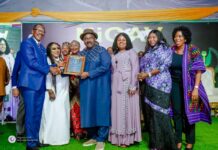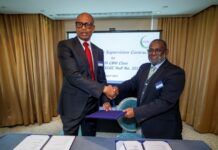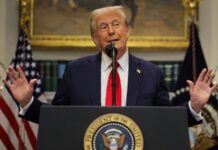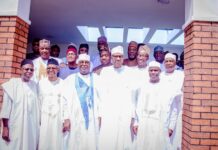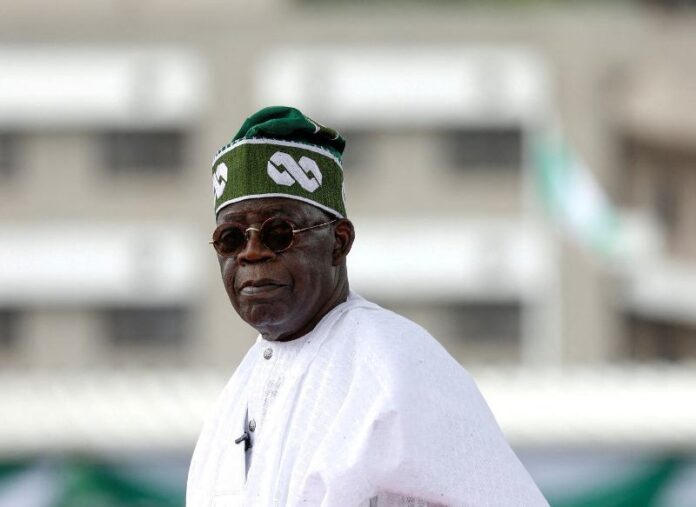Olu Fasan
Bola Tinubu, Nigeria’s president, recently inaugurated two ‘economic’ groups. The first is the 31-member Presidential Economic Coordination Council, PECC. The second is the 19-member Economic Management Team Emergency Taskforce, EET. In doing so, Tinubu is a notch better than his predecessor, Muhammadu Buhari, who did not have an economic adviser, let alone an economic council, throughout his first term.
However, that’s where the difference ends. For, like Buhari, Tinubu has persistently demonstrated a strong aversion for independent economic technocracy. He betrayed that aversion in the composition of his cabinet, which largely comprises professional politicians and cronies. Now, he has showed the aversion in the constitution of both the ‘economic’ council and taskforce.
Two things stand out from the PECC and the EET. The first is their names. One is a “coordination” body, the other a “management” body. These terms suggest Nigeria has sound economic policies, and the only task is to “coordinate” and “manage” them. Tinubu is saying: “I don’t need expert economic advice. I already know what to do. What I need are people to coordinate and manage them.”
Yet, Nigeria is built on a faulty economic model and badly needs experts who can design the institutions and policies needed to revive its moribund economy. That’s how the renowned economist Professor John Williamson described the role of economic technocrats in the seminal book, The Political Economy of Policy Reform. Thus, Nigeria needs a technocratic and independent Presidential Economic Advisory Council. But Tinubu wants “coordinators” and “managers.” He puts the cart before the horse!
The second thing that stands out from the PECC and the EET is that they are both statist and corporatist. They are statist because they are essentially a government affair. For instance, out of the 31 members of the PECC, only 13 are from the private sector; out of the 19 members of the EET, only three are non-political. What difference would the token presence of the economist Bismarck Rewane make amid a sea of governors, ministers and other political officeholders in the EET? As for the PECC, it is corporatist because some of its private-sector members are business moguls strongly connected with the government; others are those who merely value being on a government committee. Corporatism is when the state is in cahoots with large interest groups. That’s the true meaning of “public-private partnership” in Nigeria.
Recently, the respected and prolific Vanguard columnist Dr Dele Sobowale wrote a piece titled “Dangote and another Presidential Economic Council” (Vanguard, July 14, 2024). He pointed out that the foremost oligarch Aliko Dangote is “every government’s nominee to join an Economic Council,” adding that “he has been the automatic choice since 1999.” Well, no surprises, Dangote is a member of Tinubu’s PECC. The reason is not far-fetched. As I argued in this column last week, Dangote is a state-made colossus, whose wealth and business empire benefit from his continuing cosiness with the state for special favours.
Think about it. Neither Bill Gates nor Elon Musk nor Jeff Bezos will join any US government committee just because the president wants them to. Why? Well, because they did not acquire their wealth through corporatism but through a free market. By contrast, in Nigeria, too many people are billionaires through state-induced rent-seeking and arbitrage, not to mention crony capitalism where the state skews capitalism to favour some people. That said, even among those who acquired their wealth without special political favours, few can defy the all-powerful Nigerian government. In the US, government cannot unduly harass any citizen; in Nigeria, the state can make life difficult, even hellish, for anyone not in its good books.
Recently, the Financial Times interviewed Tony Elumelu, the millionaire banker turned oil magnate, who is also a member of Tinubu’s PECC. The newspaper said it was “curious” to know what Elumelu made of Tinubu’s economic reforms as “he is one of a handful of business leaders close to the administration.” Elumelu hailed Tinubu’s “courage” in introducing the reforms, although he added that “the sequencing of removing costly but popular fuel subsidies and a sharp devaluation of the naira currency could have been implemented better to first provide a social safety net for the most vulnerable in society.” But Tinubu took those far-reaching economic decisions, and many others, without consulting those he has now tasked with “coordinating” and “managing” them. That’s bad policymaking, as the policy guru Michael Barber argued in his book, How To Run A Government.
To be sure, economic coordination and management are tasks for government, not the private sector. However, economic coordination and management must be underpinned by sound economic policies. That’s where the private sector, academia, think-tanks and other policy experts come in. Tinubu cited energy security and food security among policies to be “coordinated” and “managed”. But economic coordination and management are not based on empty policy statements but informed by the intellectual graft of evidence-based policymaking.
For instance, the US government is suffused with independent sources of economic advice. There’s the National Economic Council, headed by a renowned economics professor or someone with long-standing private sector experience. There’s also the independent Council of Economic Advisers, which provides the president with “objective economic advice”. The UK has the independent Office of Budget Responsibility, which authoritatively analyses and challenges government’s economic policies. By contrast, Tinubu’s PECC and EET lack the independence, analytical rigour and robust challenge that technocratic economic councils or teams offer.
Unfortunately, in Nigeria, technocrats in presidential economic councils are often too compromised to make a difference. Take Dr Doyin Salami, a well-known economist. He was chairman of Buhari’s Presidential Economic Advisory Council, PEAC, and later his chief economic adviser. Under his watch, Buhari “bankrupted” Nigeria. Strangely, Salami is a member of Tinubu’s PECC. What about Professor Charles Soludo, a former CBN governor and renowned economist? Recently, he said Tinubu inherited a “dead economy” from Buhari. Yet, he was a member of Buhari’s PEAC. He’s now a member of Tinubu’s EET. In December 2023, Mohammed Sagagi wrote a two-part piece in Daily Trust titled, “What we told President Buhari: Reflections on the work of the Presidential Economic Advisory Council (PEAC)”. In truth, they were twiddling their thumbs as Buhari destroyed Nigeria’s economy.
Well, Tinubu’s PECC and EET won’t fare better than Buhari’s PEAC. Their statist and corporatist nature means they can’t tell him the truth. For instance, would they tell Tinubu his profligacy and patronage politics are harming Nigeria’s reputation with foreign investors? Would they tell him that adding a multimillion-dollar presidential jet to a fleet of ten negates sound economics? Of course not. That’s why the PECC and the EET are utterly worthless!
Vanguard

